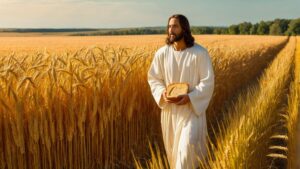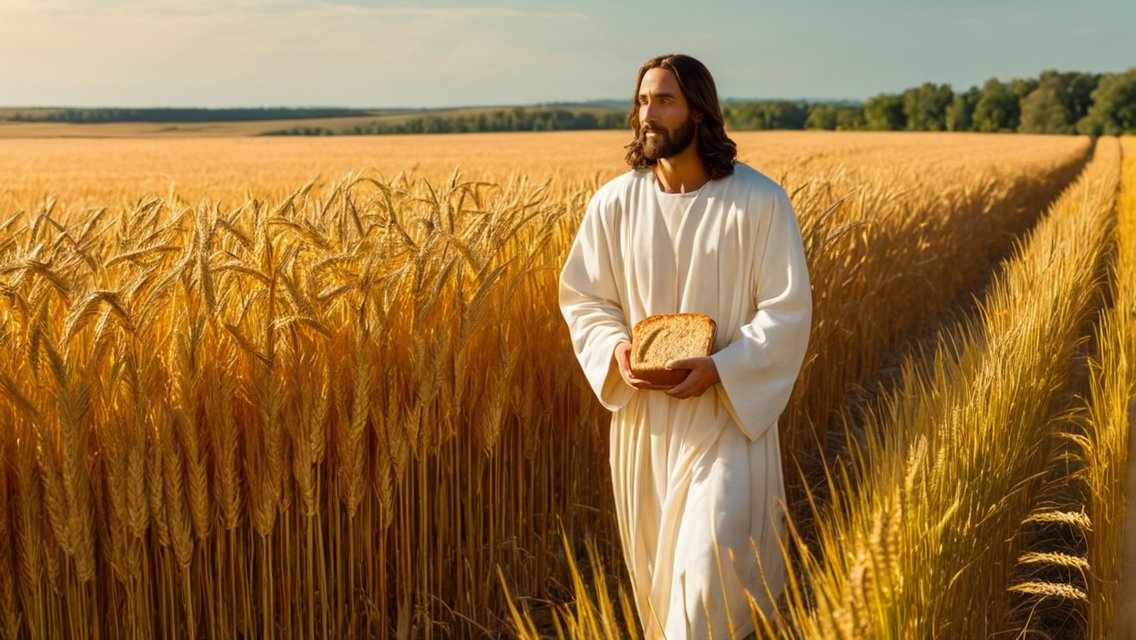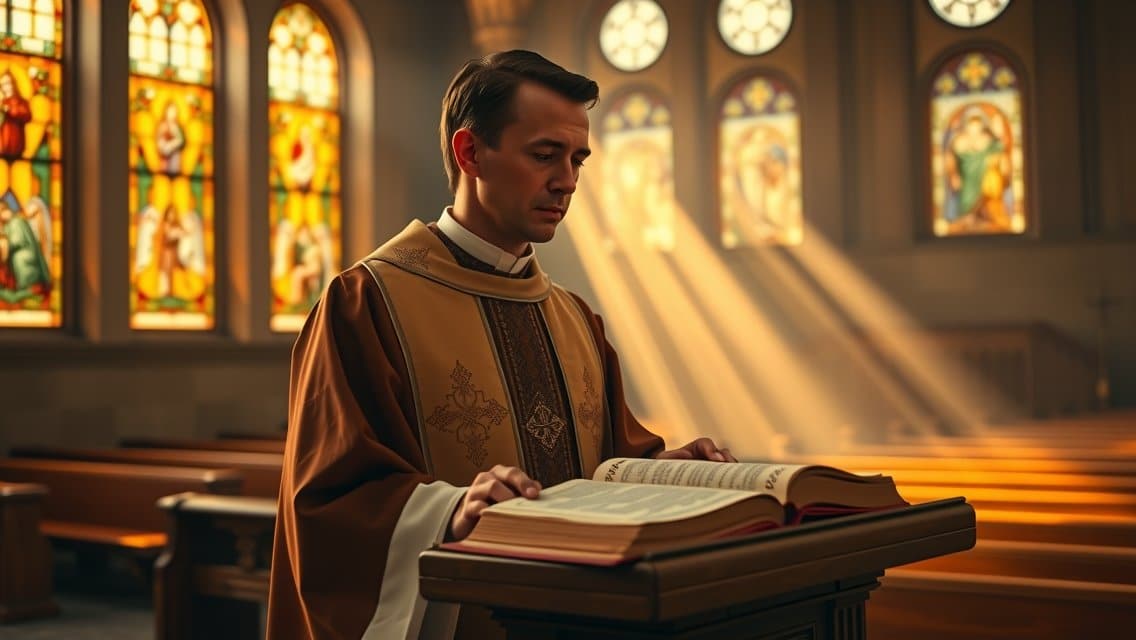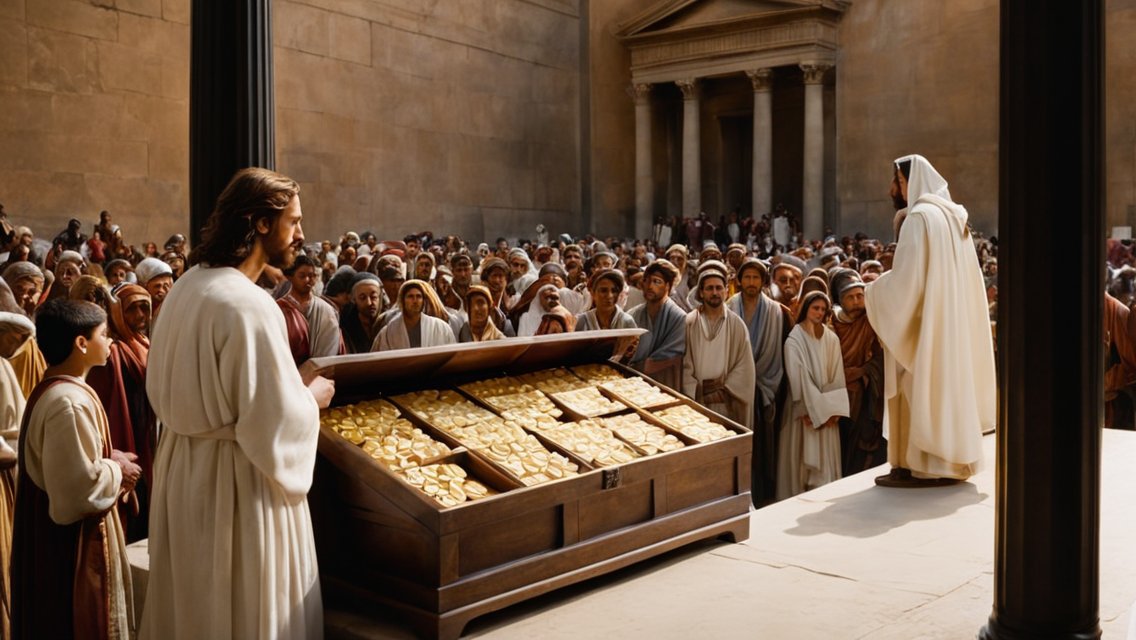Nineteenth Sunday Homily of the Ordinary Time – Year B
Readings: l Kgs 19:4-8, Eph 4:30 – 5:2, Jn 6:41-51
The Storm and the Whisper
This story reflects the message of finding God’s presence in the midst of life’s storms, a theme highlighted in the homily for the Nineteenth Sunday in Ordinary Time, Year B. Just as Elijah discovered God’s voice in a gentle whisper, Elias found peace and guidance through faith, even in the most turbulent times. Click Here
1st Reading – 1 Kings 19:4-8
4 Elijah went a day’s journey into the desert, until he came to a broom tree and sat beneath it. He prayed for death saying: “This is enough, O LORD! Take my life, for I am no better than my fathers.”
5 He lay down and fell asleep under the broom tree, but then an angel touched him and ordered him to get up and eat.

6 Elijah looked and there at his head was a hearth cake and a jug of water. After he ate and drank, he lay down again,
7 but the angel of the LORD came back a second time, touched him, and ordered, “Get up and eat, else the journey will be too long for you!”
8 He got up, ate, and drank; then strengthened by that food, he walked forty days and forty nights to the mountain of God, Horeb.
Responsorial Psalm – Psalms 34:2-3, 4-5, 6-7, 8-9
R. (9a) Taste and see the goodness of the Lord.
2 I will bless the LORD at all times;
his praise shall be ever in my mouth.
3 Let my soul glory in the LORD;
the lowly will hear me and be glad.
R. Taste and see the goodness of the Lord.
4 Glorify the LORD with me,
Let us together extol his name.
5 I sought the LORD, and he answered me
And delivered me from all my fears.
R. Taste and see the goodness of the Lord.
6 Look to him that you may be radiant with joy.
And your faces may not blush with shame.
7 When the afflicted man called out, the LORD heard,
And from all his distress he saved him.
R. Taste and see the goodness of the Lord.
8 The angel of the LORD encamps
around those who fear him and delivers them.
9 Taste and see how good the LORD is;
blessed the man who takes refuge in him.
R. Taste and see the goodness of the Lord.
2nd Reading – Ephesians 4:30-5:2
Brothers and sisters:
30 Do not grieve the Holy Spirit of God, with which you were sealed for the day of redemption.
31 All bitterness, fury, anger, shouting, and reviling must be removed from you, along with all malice.
32 And be kind to one another, compassionate, forgiving one another as God has forgiven you in Christ.
1 So be imitators of God, as beloved children,
2 and live in love, as Christ loved us and handed himself over for us as a sacrificial offering to God for a fragrant aroma.
Alleluia – John 6:51
R. Alleluia, alleluia.
51 I am the living bread that came down from heaven, says the Lord;
whoever eats this bread will live forever.
R. Alleluia, alleluia.
Gospel – John 6:41-51
41 The Jews murmured about Jesus because he said, “I am the bread that came down from heaven, “
42 and they said, “Is this not Jesus, the son of Joseph? Do we not know his father and mother? Then how can he say, ‘I have come down from heaven’?”
43 Jesus answered and said to them, “Stop murmuring among yourselves.
Homily
Heavenly Bread for Earthy Journeys
“I am the living bread which has come down from heaven” (In)
Bread – in the form of idli, dhosa, chappati, rotla, parotha, pav or naan – is the most basic food item in India, as elsewhere. The Bible speaks of “bread of joy” (Eccles 9:7), “bread of tears” (Ps 80:5), “bread of suffering” (lsa 30:20), “bread with the taste of ashes” (Ps l02:l0), “stale bread of idleness” and “bitter bread of wickedness” (Prov 4:l7, 3l:27). Basically, bread signifies human work and the food due after work: “In the sweat of your face you shall eat bread” (Gen 3: l 9). But, bread is also God’s gift, as we daily proclaim at the Offertory, “fruit of the earth!” Today Jesus tells us, “I am the living bread come down from heaven.”
In the first reading prophet Elijah is miraculously fed with bread. King Ahab threatens Elijah’s prophesying and Elijah thus flees for his life. Frightened and frustrated, Elijah wishes he were dead. “We had enough!” he cries to God, “Take my life!” But God has other plans and feeds him on this 40-day journey to mount Horeb. In the Christian context, this feeding has double significance: (a) it is a type of Jesus’ fast in the wilderness, and (b) it is a prototype of ‘holy communion’ considered the journey’ by believers.
The psalm (34) complements the first reading and the gospel. The refrain, “Taste and see that the Lord is good” was often used during communion in the early Church.
Today’s gospel passage is taken from john’s ‘bread discourse’ (ch.6). Two Sundays ago, we reflected upon the very first part of this chapter where Jesus feeds the multitude. When Jesus claims, “l am the bread come down from heaven,” the Jews murmur against him. The group ‘Jews’ here – as common in the 4th gospel – usually refers to those who do not believe in Jesus. Their ‘murmuring’ is reminiscent of the murmuring of the Israelites tired of eating manna in the desert.
In this passage Jesus repeats twice: “l am the bread of life” and “i am the living bread come down from heaven.” This is the bread we receive at the Eucharistic table that nourishes us spiritually and sustains us as we journey through life. How?
“Jesus has a table spread,” is the opening line of the hymn, “Come and dine, the Mater calleth, come and dine!” This is an invitation to partake of God‘s abundant life symbolized by Eucharistic bread, broken and shared. Indeed, the Lord’s Table is the earth itself. God is bountiful in filling the earth with food – vegetable, fruit, fish, meat, eggs – all freely bestowed. But, we, humans, control and commodity God-given resources for our own selfish ends.
Said bully brother to his little sister, Minnie, “Did you know that God was watching you when you were taking biscuits from that jar?” Minnie boldly replied, “Yes!” Big brother continued, “And what did God say?” Minnie replied, “God said, ‘take and eat as many biscuits as you want, there are only two of us here!”
Jesus’ invitation “take and eat” has been resounding for over twenty centuries. And the sacrament of the Eucharist must always be understood in its dual dimension: heavenly and historical. The heavenly ‘holy communion’ truly becomes bread for life’s journey when we enter into communion with all those denied their bread and deprived of Life.
Thanks to our farmers, bakers and bread-earners like our parents, most of us have enough and more bread to eat. But, shockingly, farmers today die of starvation. Badly caught in debt traps, hundreds of farmers from Kerala’s Wayanad district and Maharashtra’s Vidharbha district have committed suicide. India’s Prime Minister Manmohan Singh offered Vidharbha’s farmers small debt-relief packages and Chief Minister V S Achuthananda announced free rations for Wayanad’s adivasis till Onam. Are we doing enough to satisfy humankind’s hungers?
Ursula K. LeGuin wisely writes, “Love doesn’t just sit there, like a stone; it has to be made, like bread remade all the time, made new.”





